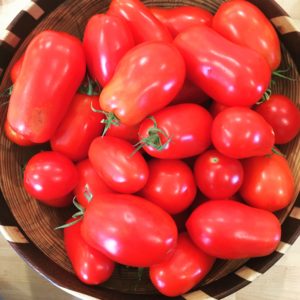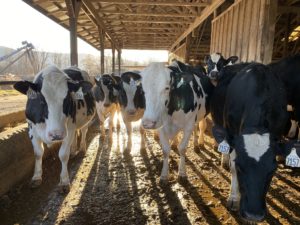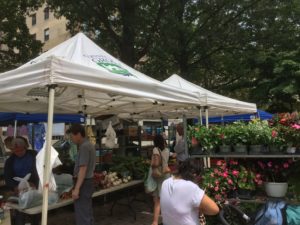My Italian grandfather always claimed the best food came from few and fresh ingredients, which were always found at the various local farm stands located in the Pioneer Valley, where I grew up. Food brought us together regardless of what was happening in our lives. A few years back, I was lucky enough to visit some of my grandfather’s relatives in Italy. They insisted on me staying with them and gave me only the finest local cuisine, which was freshwater buffalo mozzarella and the best eggplant parmesan I have ever eaten. The Italians are famous for gathering around food. As COVID-19 hits nations across the world, and especially hard in Italy and now the United States, I, like many Italian-Americans, have been sending photos of my pasta dishes with homemade sauce to my family and friends with heart emojis and messages like, “I wish we could eat this together,” in an attempt to feel connected to one another. I’d give you my family’s sauce recipe, but if my grandmother were still with us, she would jokingly say “I promise to never disclose the secret family recipe for pasta sauce” was part of her wedding vows when she married my grandfather. Thus, her sauce recipe will remain a secret that is safe with me!
Even during this pandemic, I find comfort in supporting my local farmers, farm stands, and farmers’ markets. Our local farmers in both Connecticut’s urban and rural areas are stepping up to make sure our communities are well fed during these uncertain times. Dairy farms have started delivering milk to consumers, farmers markets in New Haven remain open, wineries are still allowing consumers to pick up products, and urban farmers are preparing for the growing season with plans to increase the amount of food they will grow this year.
And during this stressful time when farmers remain responsive and are answering the call to feed us, they need protection and support from local, state, and federal officials to be assured that they can continue to “farm-on”. A new study estimates that local and regional food systems could lose up to $1.3 billion between just March and May of this year.
As governors across the country scramble to address the crisis — including Connecticut’s governor, who issued an order directing non-essential businesses to reduce in-person workforce and encouraging individuals to work from home if their job allows — governments at all levels and nonprofits are advocating and developing disaster relief programs to ensure that our families are well fed and the farmers who produce our food continue to remain viable.
Yesterday, the U.S. Senate passed a stimulus package that will provide $9.5 billion to help local and regional producers who lose revenue during this crisis. Plus, the Connecticut Department of Agriculture is committed to ensuring that food and agricultural businesses can continue to operate at this time. In a recent press release outlining 16 Critical Infrastructure Sectors that will remain open, Commissioner Hurlburt said, “Maintaining operations of food and agriculture are essential to keeping our residents fed and healthy during this time, we recognize that it is an unprecedented time and appreciate the efforts of small businesses and their employees.”
Earlier this week, American Farmland Trust announced a Farmer Relief Fund that will award farmers with cash grants of up to $1000 each to help them weather the current storm of market disruptions caused by the coronavirus crisis.
Urban farmers’ markets and rural farm stands alike make up the vast array of Connecticut’s farm businesses that remain open and continue to feed us. During this time, when many of us are staying at home and are cooking more of our own meals, I am reminded by what my grandfather taught me regarding the importance of local ingredients. And that’s why Working Lands Alliance – a project of American Farmland Trust will continue to advocate for the individuals who tend to our farmlands at the local, state, and federal levels, especially in the midst of this pandemic. Join me and support your local farmers now more than ever.







